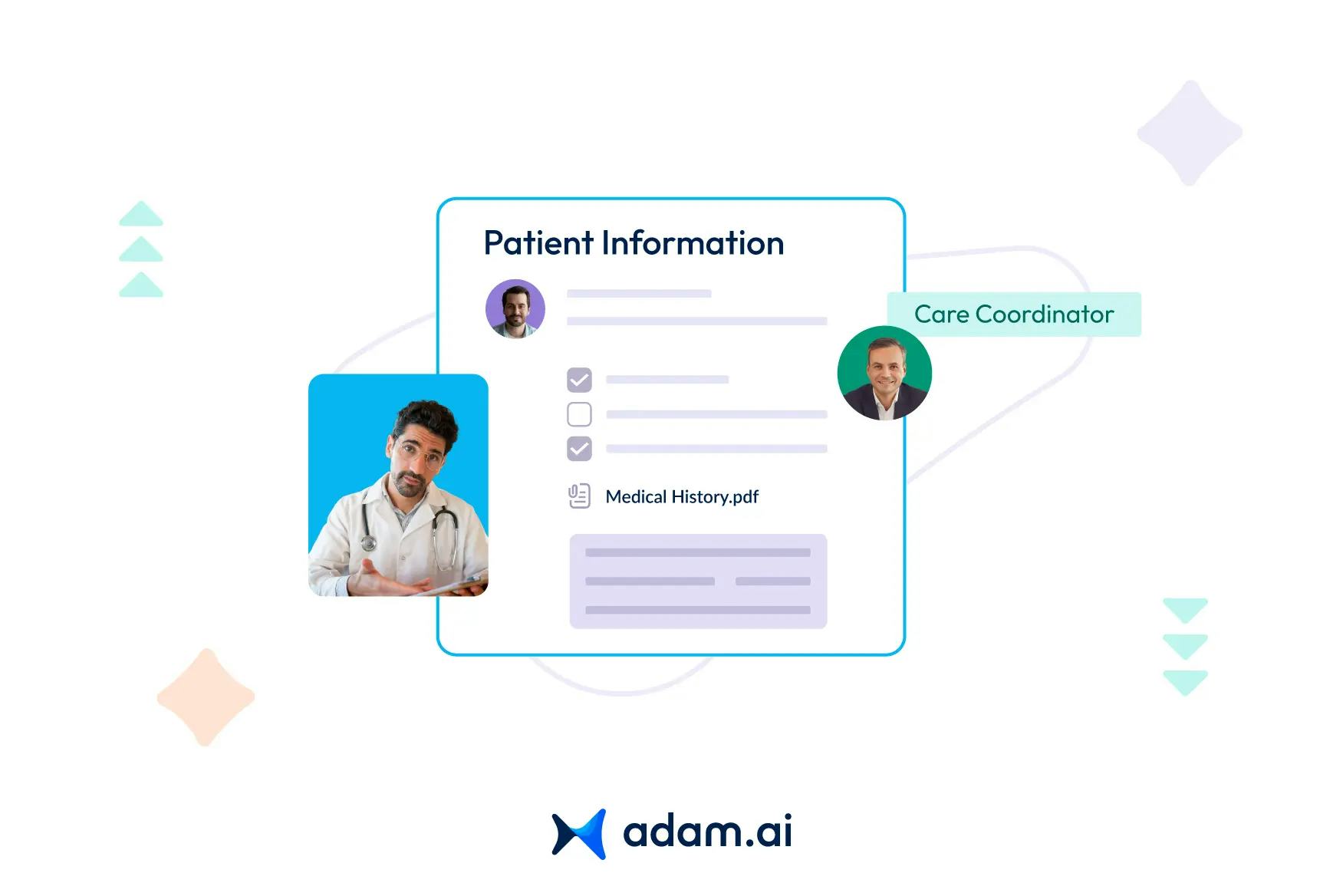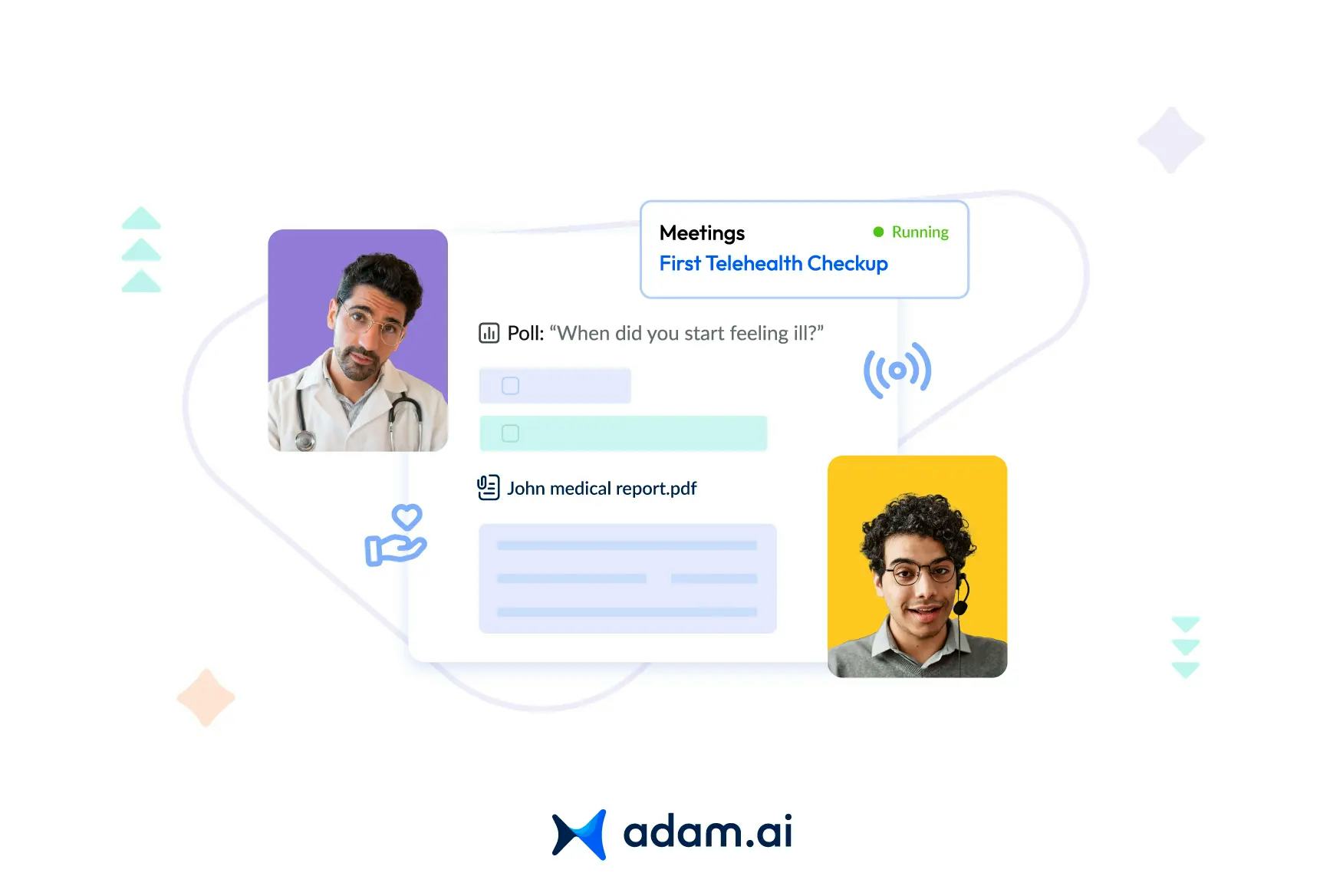Published March 25, 2024
-
8 mins read
The Contrast in Care: Healthcare Leadership vs. Healthcare Management

Shaimaa Badawi
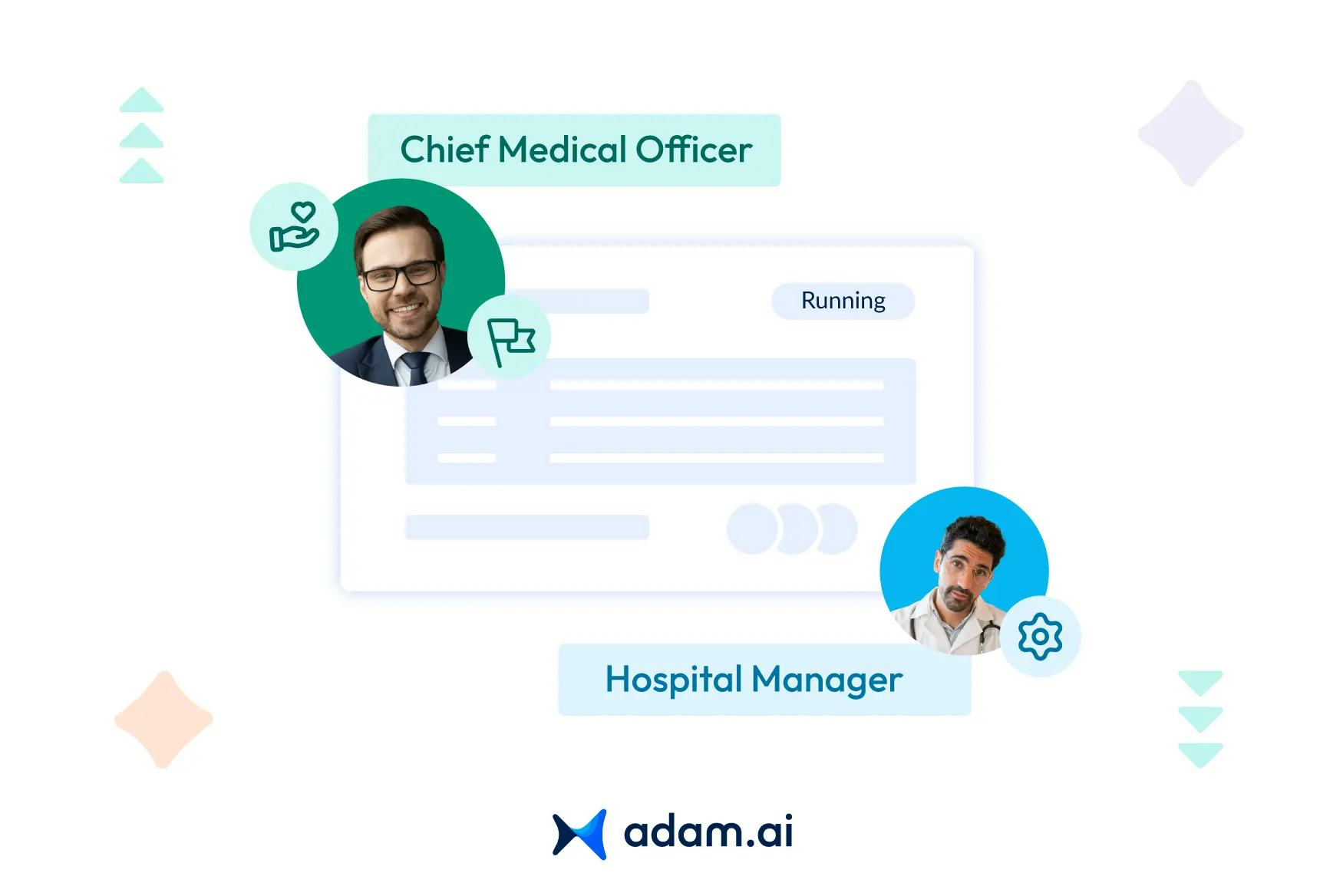
The effectiveness of healthcare organizations hinges on the roles of healthcare leadership and healthcare management. These roles, distinct yet complementary, are essential in steering healthcare organizations toward excellence in patient care and operational success. This article examines the distinctions and synergies between healthcare leadership and management, highlighting their individual contributions and collective importance in the healthcare sector.
What is healthcare leadership?
Healthcare leadership is the act of steering healthcare organizations toward growth, innovation, and improved patient care. This leadership role goes beyond everyday management tasks; it's about envisioning a future for healthcare delivery and mobilizing resources and personnel to turn that vision into reality. Healthcare leaders must possess a deep understanding of the healthcare landscape, including current challenges and potential innovations, to make strategic decisions that will positively impact patient outcomes.
Why is healthcare leadership important?
Healthcare leadership plays a pivotal role in shaping the effectiveness and sustainability of healthcare services for several compelling reasons:
Quality improvement
Leadership directly influences the standard of patient care. Effective leaders coordinate teams to ensure quick, efficient responses to healthcare needs, which is crucial for maintaining high-quality patient care.
Adaptability in crisis
The unpredictability of healthcare, highlighted by events like the COVID-19 pandemic, requires leaders who can manage stress, inspire trust, and guide their teams through challenges with empathy and transparency.
Visionary strategy
Leadership is not just about managing the present; it’s about envisioning and steering healthcare toward a better future. This involves strategic planning to overcome current challenges and enhance healthcare access and delivery.
Innovation and problem-solving
With the healthcare sector facing issues like professional shortages and worker burnout, innovative leadership is essential. Leaders need to identify underlying problems and implement technology-driven solutions to improve the work environment and patient care.
What qualities define an effective healthcare leader?
To be an effective healthcare leader, certain distinct strategies and behaviors are essential. These strategies emphasize proactive engagement, team development, and a forward-thinking mindset.
- Guidance and development: Rather than merely directing, successful leaders invest time in nurturing their team's potential, encouraging autonomy and innovation.
- Embracing change: Leaders excel by seeking enhancements in healthcare practices and advocating for a culture that welcomes change and innovation.
- Broadening knowledge: Effective leaders extend their influence by sharing knowledge and insights, enriching the collective expertise of their team and the wider healthcare community.
- Openness and adaptability: Acknowledging one's mistakes and being receptive to feedback are key. An environment that values transparency and adaptability fosters collective advancement.
- Legacy building: Leadership is also about preparing for the future. This means prioritizing the cultivation of emerging leaders, ensuring the sustainability of healthcare excellence.
What is healthcare management?
Healthcare management encompasses the comprehensive oversight and coordination of healthcare facilities' day-to-day operations. It is a critical function that ensures healthcare organizations, ranging from small clinics to large hospital networks, operate efficiently and effectively. This includes managing financial aspects such as billing, budgeting, and resource allocation, as well as handling personnel decisions related to recruitment, staffing, and evaluating employee performance.
Beyond financial and administrative duties, healthcare management involves strategic planning to enhance treatment options, direct organizational policies, and ensure compliance with regulatory standards. Managers in healthcare are not involved in direct patient care; instead, they focus on the broader picture, striving to optimize services to benefit patients and support staff.
Why is healthcare management important?
Healthcare management is essential for the seamless operation and strategic direction of healthcare systems. It ensures that complex procedures and services are professionally managed, leading to improved quality of healthcare treatments. By coordinating various administrative processes and aligning departmental activities, healthcare managers guarantee that facilities operate effectively, comply with regulatory standards, and stay abreast of medical innovations. This professional oversight is vital for both clinical and non-clinical operations, directly impacting patient satisfaction and healthcare delivery's overall efficacy.
What skills are essential for effective healthcare management?
Effective healthcare management requires a blend of soft skills, such as communication, problem-solving, flexibility, and team management, alongside practical abilities like budget and finance management, data analysis, and compliance with healthcare regulations. Mastery of health informatics and the ability to recruit and train staff are also vital, underpinning the multifaceted nature of healthcare management roles and their importance in fostering a responsive, efficient, and patient-centered healthcare system.
What are the benefits of healthcare management?
- Continuity and quality of care: A systematic approach is promoted, enhancing the effectiveness of patient treatments.
- Financial efficiency: Strategies are implemented to keep patient costs manageable, making healthcare more accessible.
- Decision-making efficiency: The accuracy and speed of clinical decisions are improved through effective data management.
- Skillset enhancement: Critical thinking, effective communication, and financial stewardship navigate healthcare challenges successfully.
What are the differences between healthcare managers and leaders?
The key differences between healthcare leadership and healthcare management can be distilled into their primary functions, skills required, and their impact on healthcare organizations:
Primary functions
- Healthcare leadership focuses on setting direction, inspiring change, and driving strategic vision. Healthcare leaders evaluate broader conditions affecting the organization and chart a course for the future, adapting plans as necessary to meet evolving healthcare needs.
- Healthcare management concentrates on executing the strategic vision laid out by leaders. This includes overseeing day-to-day operations, ensuring tasks are completed, and implementing changes or strategies developed by leadership.
Skills required
- Healthcare leadership requires a high-level view of the healthcare system, analytical thinking for planning and problem-solving, and the ability to develop and test new policies. Leaders must be adept at managing stakeholders and collaborating across departments to fulfill the organization's long-term goals.
- Healthcare management demands a clear understanding of operational details and a focus on the day-to-day functioning of the organization. Managers excel in coordinating operations, engaging directly with the workforce, and solving problems on a procedural level.
Impact on healthcare organizations
- Leaders shape the future of healthcare by identifying challenges and opportunities for improvement and fostering an environment of innovation and growth. They play a crucial role in guiding healthcare organizations toward achieving overarching goals and responding to changes in the healthcare landscape.
- Managers ensure the efficient functioning of healthcare facilities, from financial management to staff coordination. They are essential for maintaining high standards of patient care and operational excellence within the set strategic framework.
Why is effective communication crucial in health care leadership and management?
Effective communication is crucial in healthcare leadership and management for several key reasons, impacting decision-making, team dynamics, operational efficiency, and more.
1. Informs strategic choices: Clear communication is essential for sharing critical information and facilitating informed and strategic decision-making that enhances patient care and operational effectiveness. It enables administrators to assimilate diverse inputs like research findings and policy updates into actionable strategies.
2. Enhances team dynamics: Effective communication is foundational for the cohesive operation of healthcare teams. It ensures everyone is aligned with the patient care plan, promoting a harmonious work environment and improving team satisfaction, which can lead to lower staff turnover rates.
3. Optimizes healthcare delivery: Communication efficiency directly influences the smooth execution of healthcare operations. It guarantees that protocols are understood and adhered to, ensuring that the care delivery process is both effective and resource-efficient.
4. Improves resource allocation: Strong communication underpins successful resource management, crucial for handling staffing and scheduling within healthcare facilities. It allows for the meticulous planning and adjustment of resources, ensuring that patient care is not compromised.
5. Maintains compliance standards: Keeping up with regulatory compliance, such as HIPAA requirements, necessitates robust communication protocols. This ensures that all team members are up-to-date with the latest regulations, helping avoid potential legal and financial penalties.
6. Enhances crisis response: Effective communication is critical during emergencies, ensuring quick and clear information flow to stakeholders, thereby improving the healthcare facility's response to crises.
How adam.ai empowers healthcare leaders and managers
In the intricate world of healthcare, effective leadership and management are pivotal for ensuring high-quality patient care and operational excellence. The complexity of coordinating care, making timely decisions, and implementing policies demands innovative solutions that foster clear communication and seamless collaboration among healthcare teams. Optimized for the healthcare industry and patient care organizations, adam.ai is a modern board management software platform that enhances the efficiency of meetings, decision-making processes, and policy implementation for healthcare leaders and managers.
Here's what you can do with adam.ai:
1. Simplified scheduling for meetings across the diverse network of healthcare professionals, ensuring critical collaboration between specialists, primary care providers, and other stakeholders without the logistical challenges of in-person meetings.
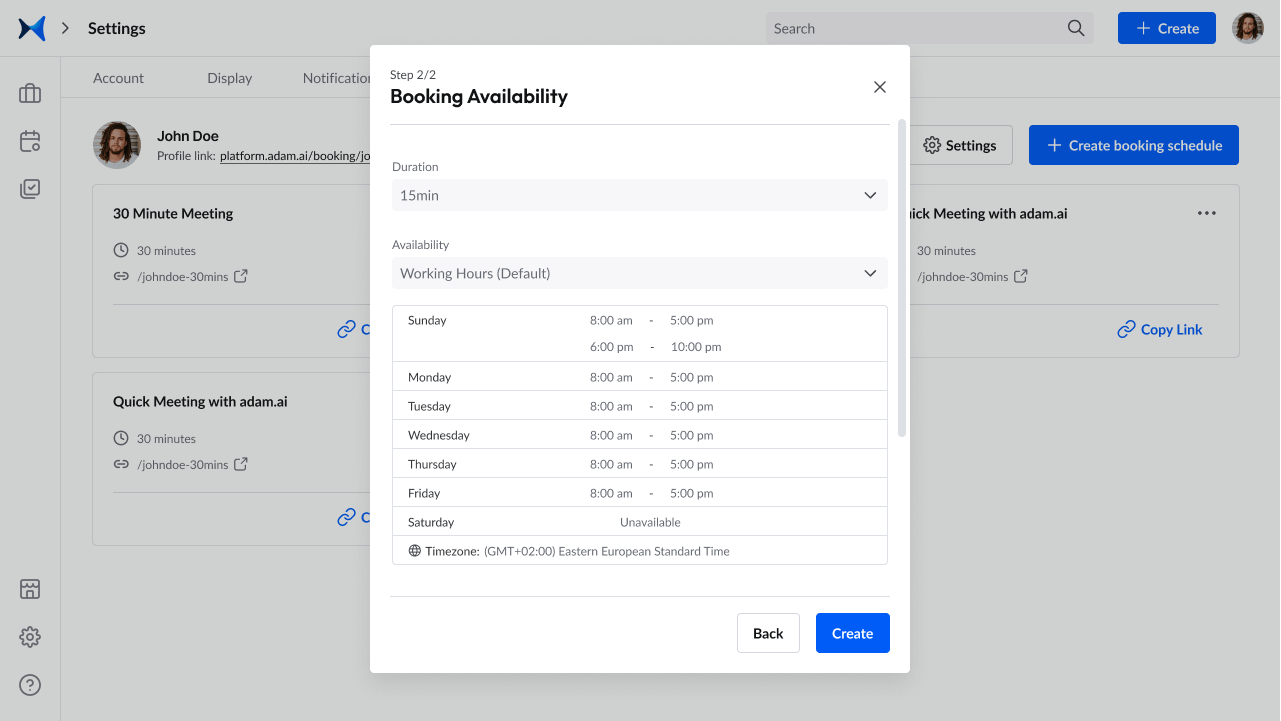
2. Integrated smart note-taking and video conferencing to facilitate real-time discussions on patient care plans, making it easier to share updates, deliberate on treatment options, and reach consensus with immediacy and clarity.
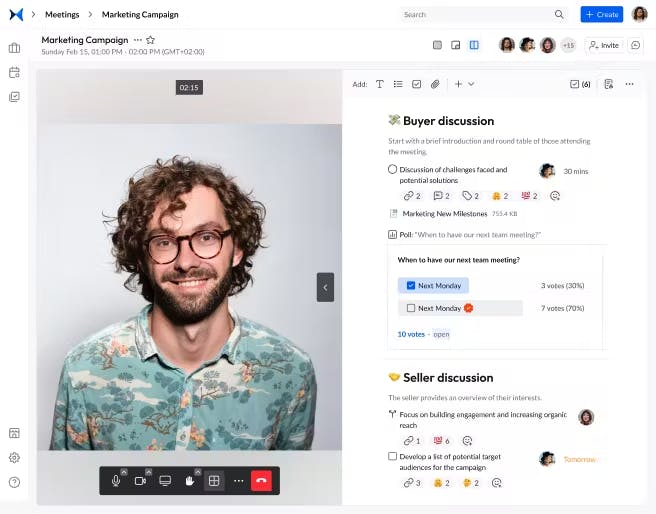
3. Comprehensive action and decision tracking to maintain meticulous oversight of patient care plans and follow-ups, ensuring no detail or update is missed in the continuum of care.
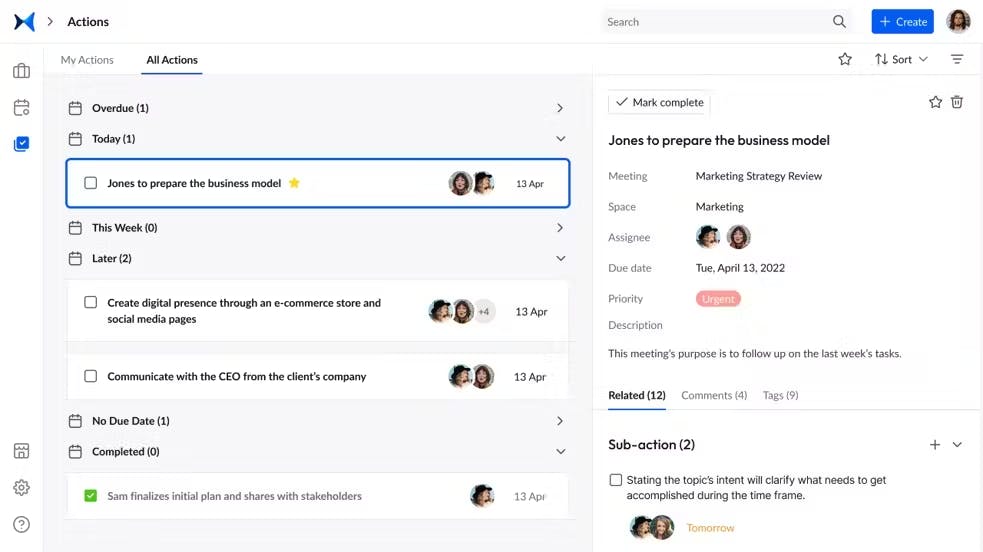
4. Organized categorization of meetings and records by teams or projects, offering a structured repository for all pertinent information on patient history and treatment plans, enhancing continuity of care.
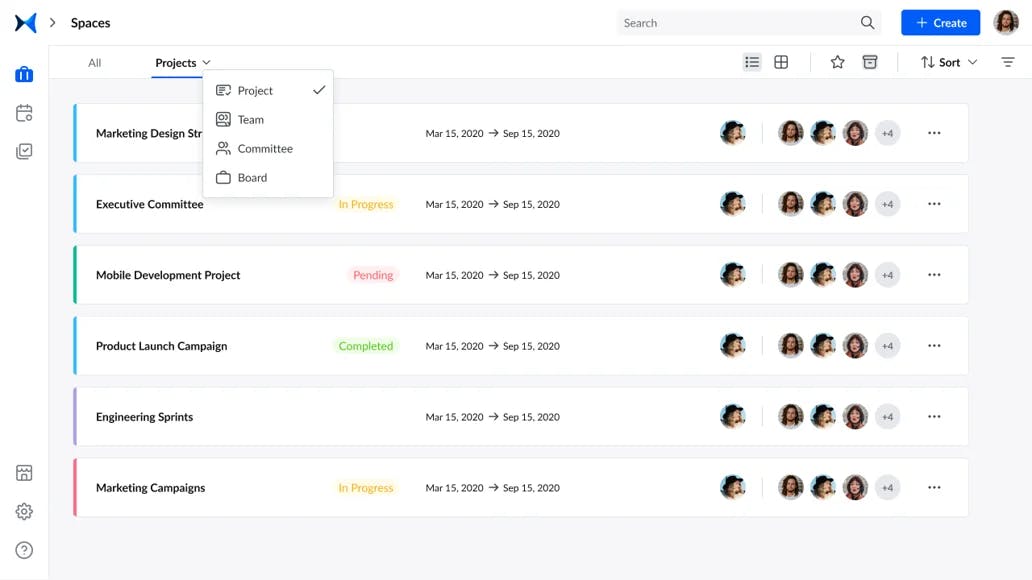
5. Efficient generation and distribution of meeting minutes, vital for maintaining accurate records of discussions and decisions, essential for compliance, reference, and strategic planning.

6. Access to an analytics dashboard that provides insights into participation, decision impact, and progress on action items, aiding in the continuous improvement of meeting productivity and decision-making processes.
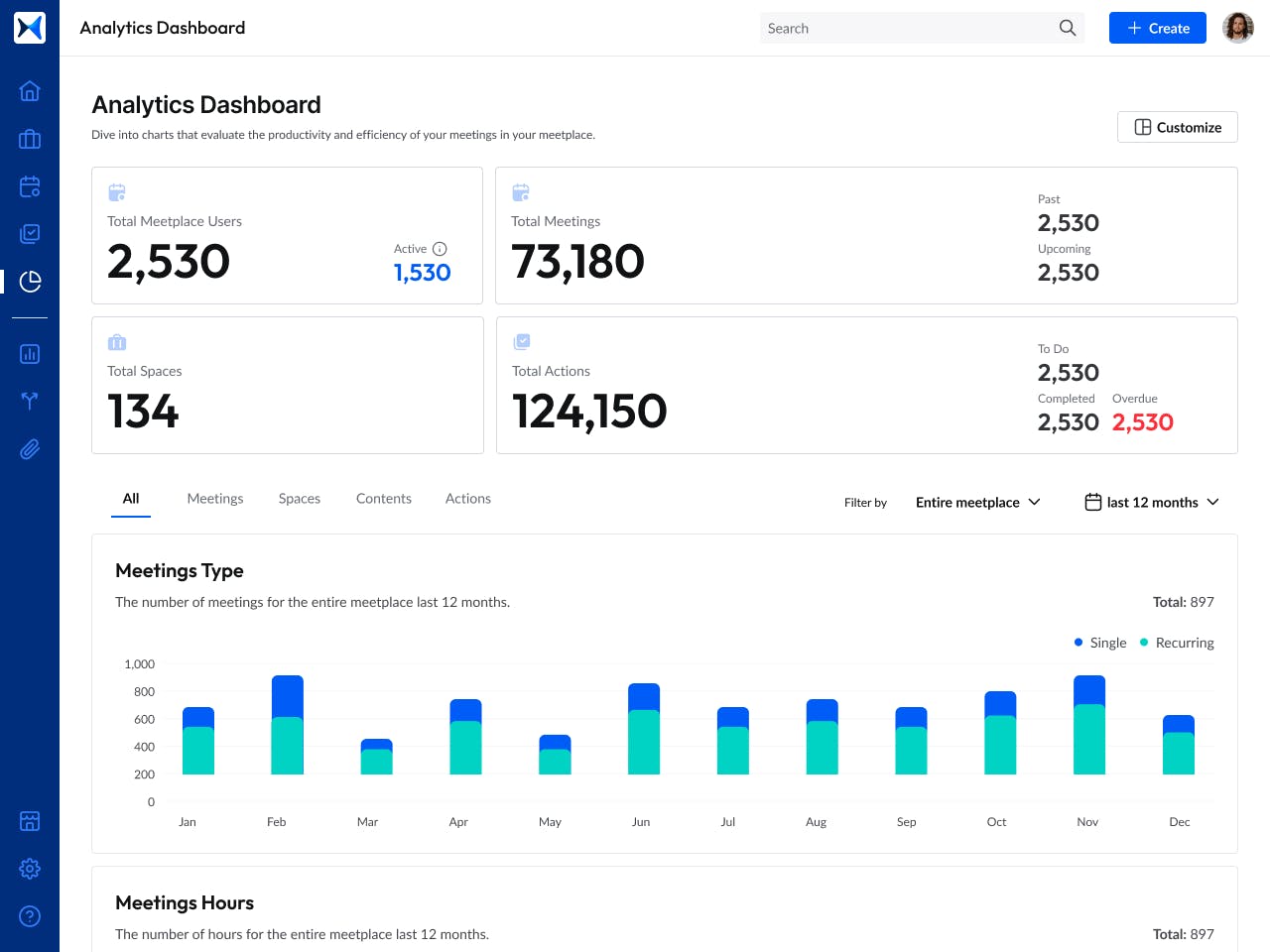
Get started right now to streamline the process of managing and leading your healthcare establishment through effective meetings.
The bottom line
The examination of healthcare leadership and healthcare management underscores the indispensable roles both play in the success of healthcare organizations. While healthcare leadership is tasked with vision-setting and inspiring innovation, healthcare management ensures these visions are realized through precise operational execution.
The interplay between these roles is vital for delivering high-quality patient care and navigating the sector's challenges, demonstrating the necessity for both strong leadership and effective management in healthcare.
As healthcare leaders and managers seek to optimize their operations and decision-making processes, solutions like adam.ai emerge as key tools in facilitating the seamless collaboration and communication required to achieve these goals.
And while there may be multiple meeting management solutions available, here is why adam.ai is the board management software platform you can trust:
- adam.ai is one of Atlassian Ventures' portfolio companies.
- In the meeting management software category on G2, adam.ai has been ranked a leader and a high performer for successive quarters in the past years.
- adam.ai has been included in the Forrester Report in the AI-enabled meeting technology landscape.
- adam.ai is trusted and used by powerful teams and organizations worldwide for all types of critical meetings, like board, committee, project management, and business development meetings.
- And most importantly, adam.ai integrates with your existing workflow, is SOC2 compliant, provides dedicated support and success, and has a free trial option.
About the author ...
Shaimaa Badawi is an Inbound Marketing Specialist at adam.ai. Her research revolves around meeting management, project management, and board meetings, where she identifies the most daunting meeting pain points that C-level executives, board and committee members, corporate secretaries, and other professionals working in enterprises face in meetings. Based on her findings, Shaimaa provides solutions for inefficient meetings, defines various aspects of corporate-level meetings, and outlines best practices on how to run effective meetings.
Subscribe to our blog
Subscribe to our blog
Get the latest blog posts sent straight to your inbox.

